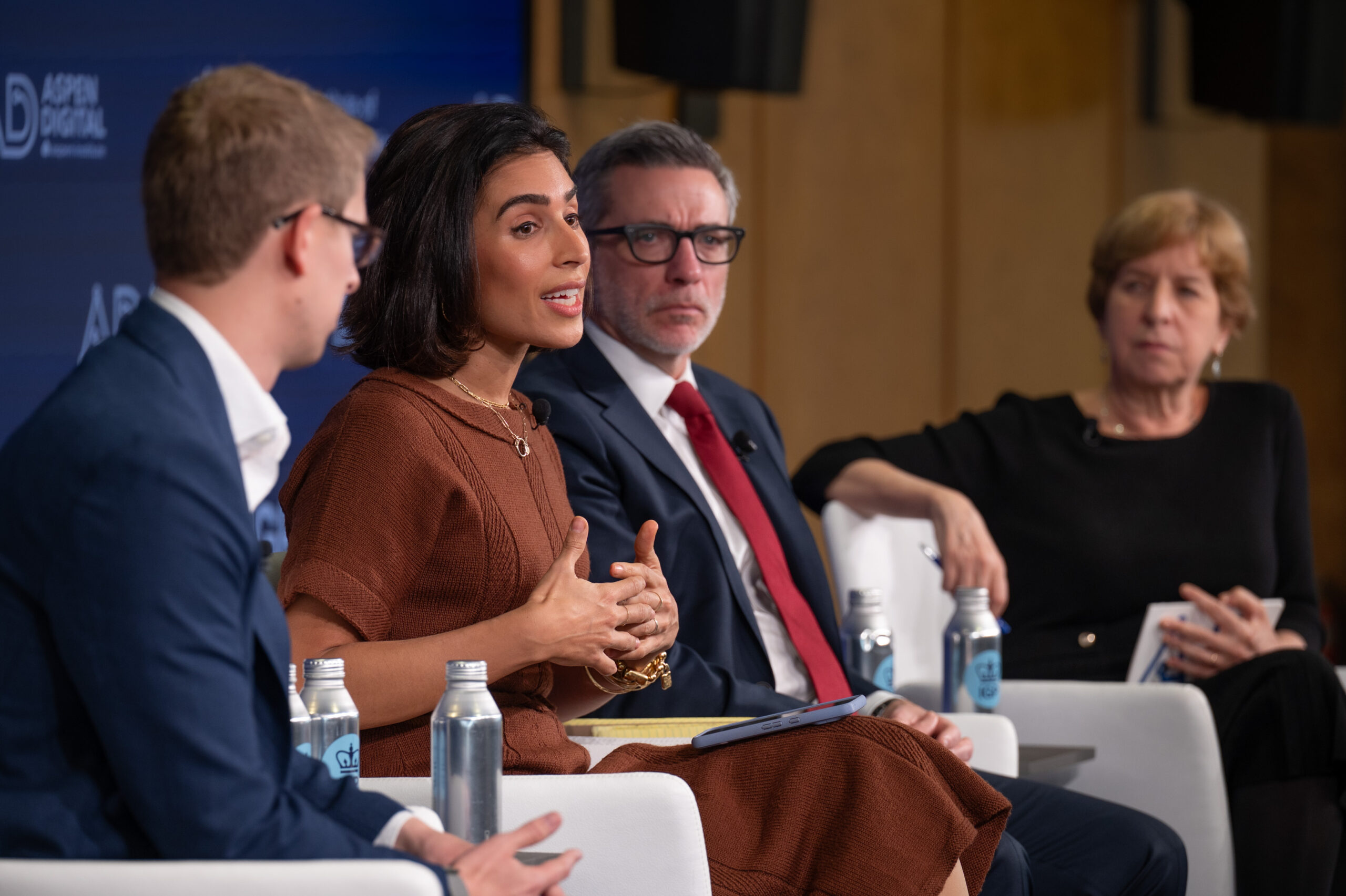Left to right: David Agranovich, Director, Global Threat Disruption; Yasmin Green, CEO, Jigsaw (Google); Clint Watts, General Manager, Microsoft Threat Analysis Center; and Vivian Schiller, Vice President and Executive Director, Aspen Digital, The Aspen Institute. Photo: Shahar Azran.
With billions heading to the polls this year, the stakes for global democracies are substantial. Advances in artificial intelligence are already reshaping entire sectors as well as the flow of news, information, and media. How will AI change the information ecosystem, and how will governments, campaigns, and the public respond to new challenges?
These are the big questions a group of experts gathered by Aspen Digital and the Institute of Global Politics at Columbia University’s School of International and Public Affairs recently met to discuss. Speakers included former Secretary of State Hillary Clinton; former Secretary of Homeland Security and Co-Founder and Executive Chairman of Chertoff Group Michael Chertoff; Co-Founder of Schmidt Futures and former CEO & Chairman of Google Eric Schmidt; Vice President of Global Affairs at OpenAI Anna Makanju; CEO of Jigsaw Yasmin Green; Nobel Peace Prize-Winning Journalist Maria Ressa; Vice-President for Values and Transparency, European Commission Věra Jourová and others.
While the group acknowledged the huge potential of AI for creating real societal good, many of the leaders also reinforced the true scope of the threat this election year.
“Anybody who’s not worried is not paying attention,” said Hillary Clinton. “As we’re here today doing this panel, there are literally people planning how to interrupt, interfere with, and distort elections, not just in the United States but around the world.”
With powerful and ubiquitous new AI technologies, creating deep fake videos, audio, and other media has never been easier, making it harder for fact-checkers, journalists, and voters to figure out what’s real and what’s propaganda. Bad actors can now easily pull the same emotional levers that make viral social content successful in service of their own goals.
“If you look at misinformation, we now understand extremely well that virality, emotion, and particularly powerful videos drive voting behavior, human behavior, moods, everything,” said Eric Schmidt. “The tools to build really, really terrible misinformation are available today globally. Most voters will encounter them through social media.”
As we learned before in an interview with Aspen Digital, AI-generated content created to mislead voters can and will appear on social networks, but AI will be used to affect voting outcomes in other ways. It could be exploited to suppress hyperlocal voting blocks, where bad actors create campaigns aided by AI to target and both disengage and disenfranchise voters. AI will also likely be used to manipulate non-English speaking voters as well as to create “decoy” news sites that look real but are not.
The challenge is truly great, but as discussed at the event, not unheard of. “We are engaged in a quintessentially American tradition, forming a democratic response to emerging technologies,” said Vivian Schiller, Aspen Institute VP and executive director of Aspen Digital. “A key measure of any democracy is its ability to absorb and adapt to change. We are capable of marshaling our ideas to mitigate the bad—and particularly to harness the good—into reforms that reflect and preserve democratic values. It’s important for us to remember we are capable of doing this.”



